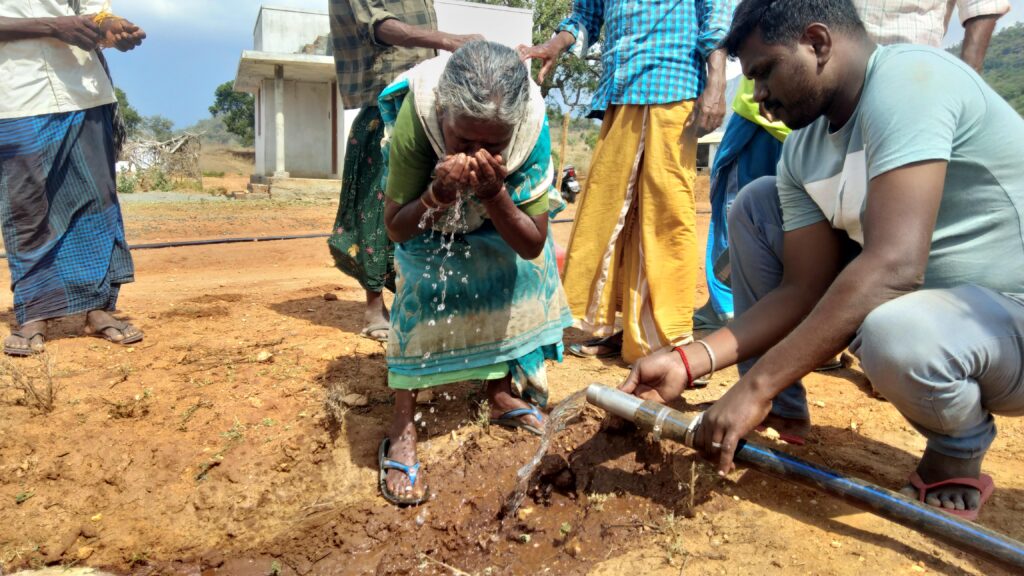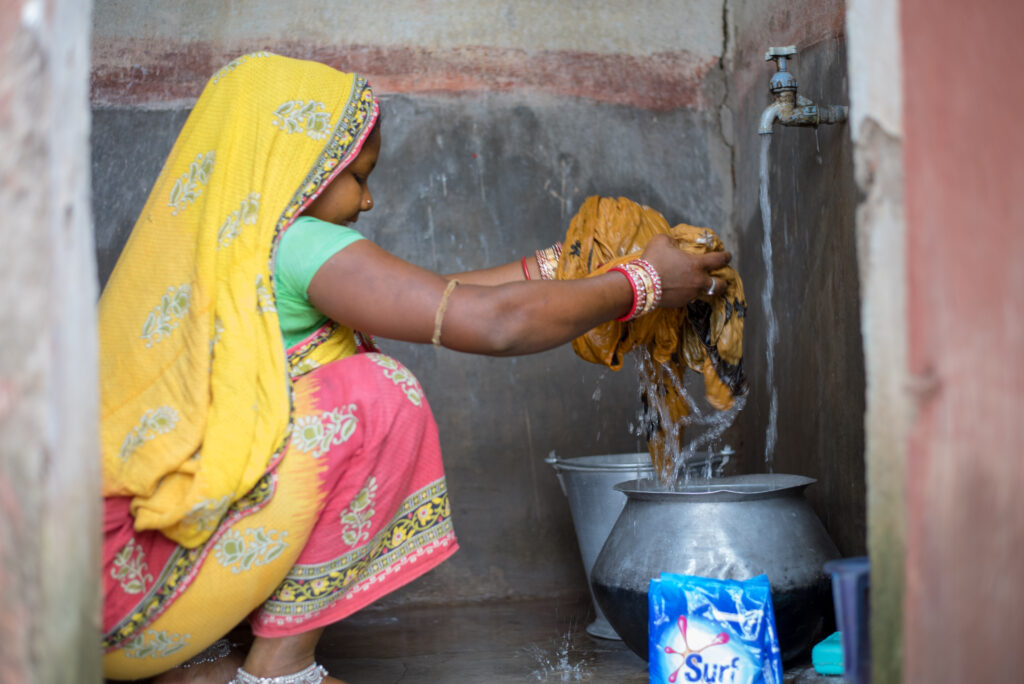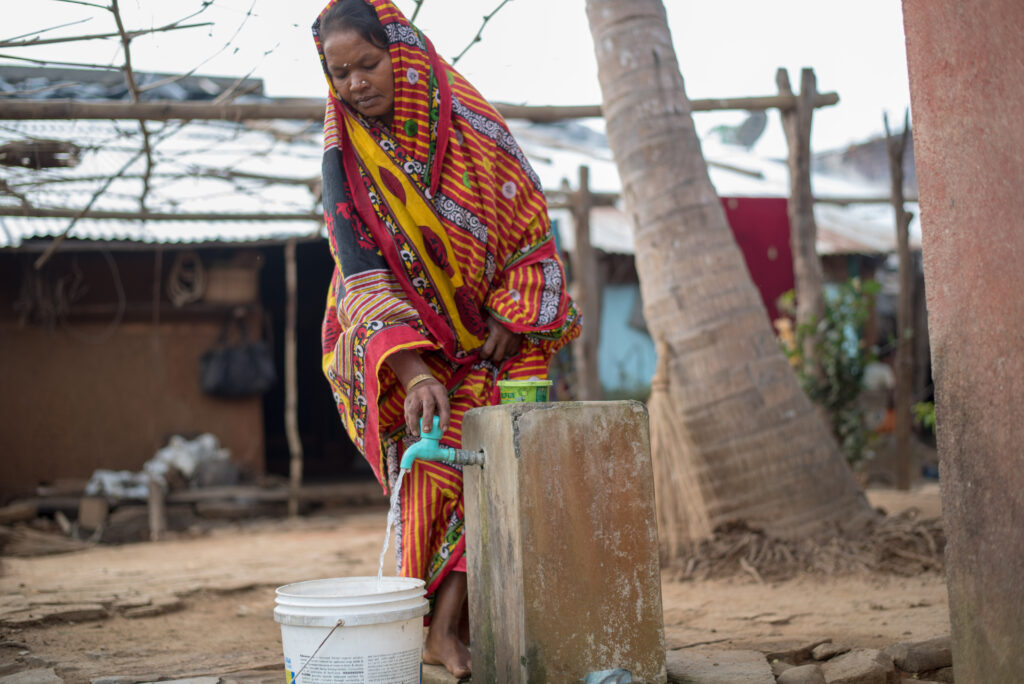25-30,000 people in India’s underprivileged tribal and rural communities can now look forward to improved water access, as Sunlit Future and three local NGOs (Gram Vikas, Bela Vikasa, and Shri AMM Murugappa Chettiar Research Centre) will build new water infrastructure in states Odisha, Telangana, Andhra Pradesh and Tamil Nadu.
The total budget for the new projects is DKK 7.8 million (EUR 1 million), and the remaining funds are provided through other donors.
“As a continuation of our ‘100-100’ project for providing drinking water access in rural and tribal communities, we aim at reaching another 100 villages in year 2022-23. The preliminary work of site visits and assessments will start as early by end of April followed by other required works. A baseline survey with selected no of sample villages will be done alongside. We aim to successfully continue bringing sustainable solutions to address the drudgery of many communities,” says Induja Gandhiprasad, Project Lead, Sunlit Future.
This expansion is phase 4 of our long-term engagement in India, “100 pumps for 100 villages”. Today, the number of projects has climbed to over 300.

An Irula tribal women from Tamil Nadu rejoices on seeing water made available from a deep borehole. Photo: Induja Gandhiprasad
New standard
In India, the joint effort by tech provider Sunlit Future and local NGOs from working in rural and tribal communities has evolved into a standard solution being replicated by other WASH actors.
Providing access to drinking water with solar-driven pumps has emerged to be an integrated Water, Sanitation and Hygiene (WASH) model in in rural and tribal communities of India. The majority of these communities lack access to potable drinking water and basic sanitation facilities at community level.
– Bringing a household level water supply through our project is a real ‘game-changer’ in these communities toward improved hygiene practices and public health in Odisha, says Liby T. Johnson, Executive Director, Gram Vikas.
Water plays a major role in sanitation and hygiene practices as villagers had no way to improve their practices with the limited access to water.

Ganjam, Odisha: Rural women are now able to access water for household works and bathing in their bathing rooms. Photo: Ajaya Kumar Behera
Systemic change through best practice
Since 2014, the Foundation’s partner Sunlit Future has established solar-driven water supplies in rural India in collaboration with local partner NGOs such as Gram Vikas. Being a solar energy tech provider, Sunlit Future had to rely on their partners to drive community development locally.
The NGOs work closely with each community to facilitate hygiene awareness and build infrastructure like household level toilets, water filters, etc.
– We’ve seen improved quality of life, especially among women and children. Some of our partner NGOs have even adopted a practice of installing water meters at household level to monitor water consumption which helps avoid over-consumption, says Induja Gandhiprasad.
The successful project model has proven to be cumulative which led many other social service providers and NGOs to replicate the model in other remote places in India. They have been proactive bringing in matching funds or fundraised to buy and implement the entire system themselves in many cases.
The extended projects and programmes carried out by local partner NGOs have been phenomenal in bringing about changes that the people in these communities share. Apart from bringing solutions, they have also been widely successful in strengthening these communities by allowing a sense of collective ownership of the system through village Water Committees.

Sukanthi accessing drinking water from the piped drinking water system set up in her village in Rudhapadar, Odisha state. Photo: Ajaya Kumar Behera
| Grundfos Foundation projects in India | Replication projects |
To date, 303 piped drinking water supply projects have been established via our Sunlit Future partnership:
All Foundation-funded projects are being tracked in a joint online dashboard. |
By the end of 2021, 662 similar piped drinking water supply projects were established by local partners and other WASH actors:
|

